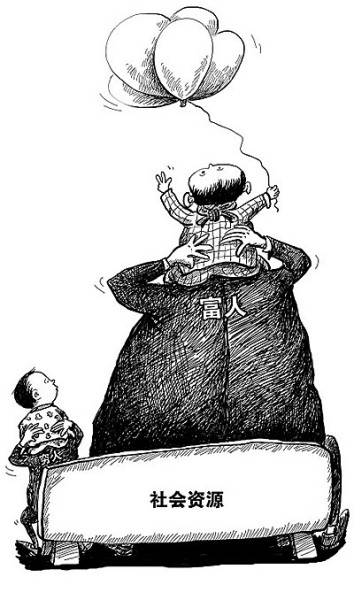
A “rich person” holds his child aloft next to a tiny “poor person.” Both sit on the bench of “society’s resources.” (artist unknown)
贫二代 (pín èr dài): poor second generation
Before China’s reform and opening up, communism had substantially leveled the playing field, placing most people on more or less the same economic level. With Deng Xiaoping’s free market reforms, the gap between rich and poor began to widen. The children of those who prospered during the reform and opening up period are call the “rich second generation,” while the children of those who did not prosper are the “poor second generation.”
Commentators complain that institutional barriers, such as the high cost of education and the importance of connections, hinder economic mobility.
See also governing second generation and rich second generation.
The Grass-Mud Horse eBook is your guide to the Chinese Internet. Available from Kindle, iTunes, and Google Play.
The Word of the Week comes from China Digital Space’s Grass-Mud Horse Lexicon, a glossary of terms created by Chinese netizens and frequently encountered in online political discussions. These are the words of China’s online “resistance discourse,” used to mock and subvert the official language around censorship and political correctness.








